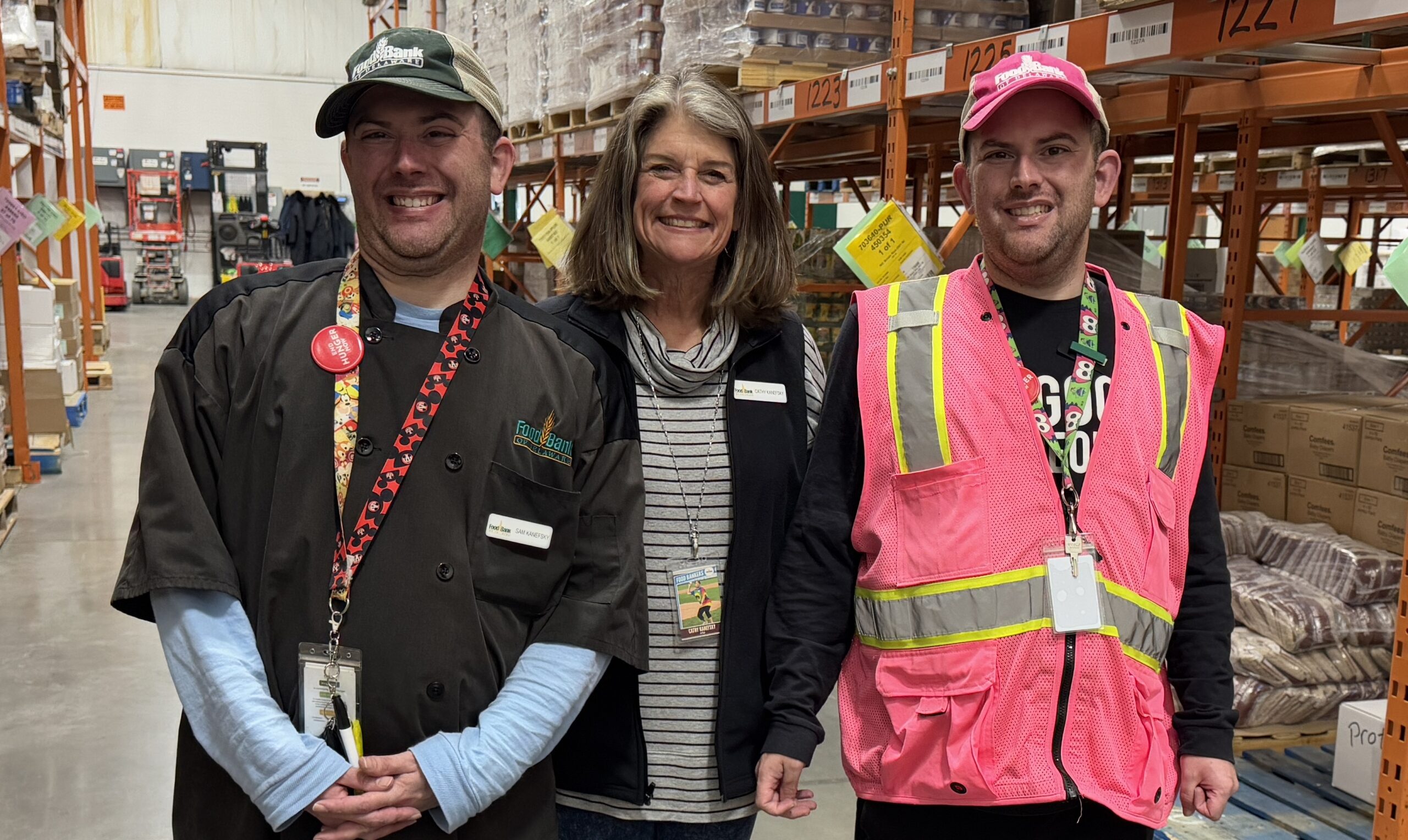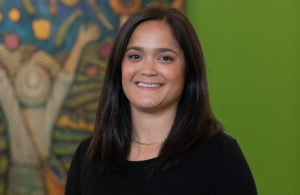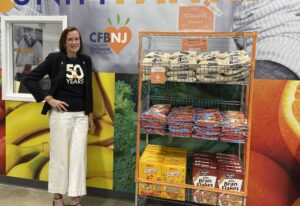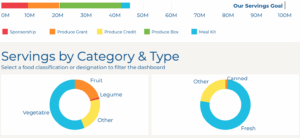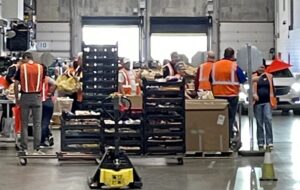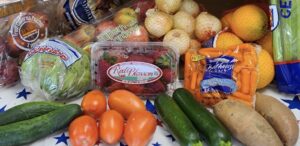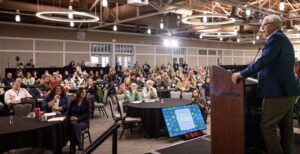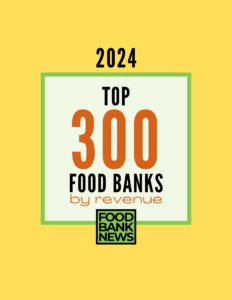Every food bank leader brings their own set of experiences and perspectives to the role. That is especially true for Cathy Kanefsky who came on as CEO of Food Bank of Delaware nearly four years ago, while raising twin sons with autism.
“I walked into this place with eyes that just saw a different perspective because my twin sons are 33 and they both have autism,” Kanefsky said. “I remember clearly looking at the different areas of what we do and thinking, ‘Wow, this place is ready-made’” to help people with intellectual disabilities.
Food Bank of Delaware is working that angle with a kitchen training program for adults with intellectual disabilities that has graduated 111 people since October 2022, placing 48% of them in permanent positions, including at the food bank. The Kitchen School, which was piloted with aid from the Delaware Restaurant Association, adds to the food bank’s workforce programs for non-disabled adults, which include training in culinary skills and logistics/warehousing.
Food Bank of Delaware is one of a number of food banks that are embracing workforce development as a way to equip people with long-term skills to help avoid food insecurity. According to Feeding America’s Summer 2024 Impact Report, 117 food banks in the network are currently involved in workforce development activities.
Food Bank of Delaware stands out for its focus on aiding people with intellectual disabilities. In addition to the kitchen training program for adults with disabilities, it also offers a summer culinary training program to students with disabilities aged 16 to 22 years. A third program that provides one-on-one coaching is putting the food bank in position to become a full-fledged employment and training agency for people with intellectual disabilities, an effort that it expects will be supported by the state.
“This is the next phase, and we’ll be doing richer, more robust training programs,” said Kanefsky, who is also one of 21 people around the country who served on the President’s Committee for People with Intellectual Disabilities in the Biden Administration.
It’s fair to say that Kanefsky’s pathway to this specific point began when her twin sons, Adam and Sam, were born prematurely, each weighing less than two pounds. Nothing about her pregnancy was considered high risk and in fact, Kanefsky had gone to work the day before. “Our life changed on a dime,” she said. “From that point on, everything we did changed,” including a career shift for Kanefsky into the nonprofit world.
When the twins were five years old, they were diagnosed with autism, which eventually led Kanefsky to a leadership position at the nonprofit Autism Speaks. There, she was again struck by the twists life can take, based on factors that are outside of anyone’s control. “We’re all just people,” she said. “It didn’t matter who you were or how much money you had, autism was going to find you too.”
Having two sons with autism gives Kanefsky broad and deep perspective. She knew from experience that autism can demand a high level of individualized care and attention. She also knew that the landscape of professionals providing direct support to people with disabilities is “abysmal,” marked by a lack of workers, low pay and poor training.
As a result, even before the food bank began training people with intellectual disabilities, Kanefsky determined the need to provide on-site coaching and support for them. So the food bank built its Specialized Training and Employment Program, or STEP, which provides job coaching and other one-on-one support to people with disabilities.
The STEP program has enabled the food bank to hire ten people with intellectual disabilities, including Kanefsky’s sons, for various positions around the food bank, including kitchen work, data entry, and housekeeping. Kanefsky cites the program as critical to the food bank’s success in being able to create opportunities for people with disabilities. “We realized, until we had the right support for them, we couldn’t grow that,” Kanefsky said.
The STEP program has also attracted the attention of Delaware’s Division of Developmental Disabilities, which is in the process of partnering with the food bank to “help us figure out how to become our own agency,” Kanefsky said. “So we’ll get funded.” Currently seven associates, including a director of specialized training, are involved in all aspects of teaching and coaching people with intellectual disabilities at the food bank. The state funding would arrive just as a two-year commitment from a private donor for the STEP program is ending.
Unpredictable events related to Kanefsky’s autistic sons (a third son is 20 months younger) have continued. In September 2018, Sam suffered from a brain stem stroke, which sent him to the hospital for weeks and saddled him (only temporarily, as it turned out) with a wheelchair and a feeding tube. The episode traumatized his twin Adam who had to undergo months of work with a pharmacological psychiatrist to restore his medicinal balance.
Such episodes underscore for Kanefsky that the future is uncertain, and that goes for everyone. “Nobody is coming to us for workforce development training, because two months ago, everything was perfect,” she said. “Nobody’s coming to us for food because everything’s dandy. None of us knows what tomorrow is going to be, so we’re all in this together.” – Chris Costanzo
Photo, top: Cathy Kanefsky with her twin sons, Sam (left) and Adam, at Food Bank of Delaware’s warehouse.
Like what you’re reading?
Support Food Bank News
